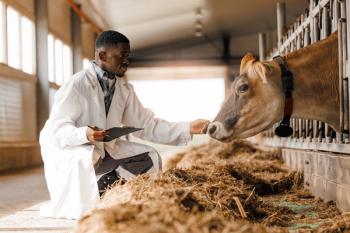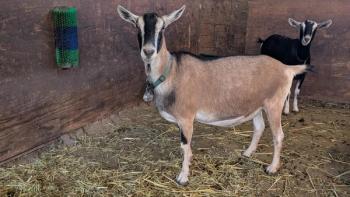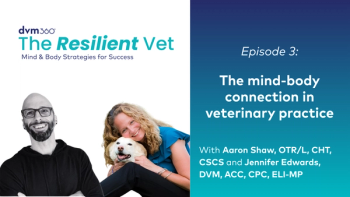
- dvm360 June 2020
- Volume 51
- Issue 6
AAVMC names first wellbeing director
Mackenzie Peterson will play an instrumental role in promoting mental health at the Association of American Veterinary Medical Colleges’ member institutions.
In light of the high suicide risk, job-related stresses and hazards, and compassion fatigue in the veterinary profession, the Association of American Veterinary Medical Colleges (AAVMC) has named its first director for wellbeing.
Makenzie Peterson, MSc, previously served as the wellbeing program director at Cornell University College of Veterinary Medicine and as vice chair of Veterinary Mental Health Professionals, a group recently established by the AAVMC to help coordinate efforts and share best practices.
In her new role, which she started in April, Peterson will “bring a systems-oriented, community-wide perspective” in “catalyzing the development of wellbeing initiatives for academic veterinary medicine and working with mental health professionals at all member institutions to develop outreach and other programs that enhance the wellbeing of faculty, staff and students,” according to an AAVMC press release.
“We’re delighted to welcome her to the AAVMC,” says the association’s CEO Andrew T. Maccabe, DVM, MPH, JD. This is a critical moment in the development of a very important program for us. Makenzie’s expertise, network and systems perspective will be instrumental in helping us elevate the quality of wellbeing programs throughout our academic community.”
Peterson specializes in developing community-wide programming that complements individual clinical counseling efforts to improve overall wellbeing. She is a health and wellness coach, certified rape crisis counselor and opioid overdose prevention educator. She lectures frequently about stress reduction, suicide prevention, compassion fatigue and burnout, mindfulness and meditation, and other wellbeing-related topics.
“I'm excited to be part of the AAVMC team and collaborate with all the member institutions to help us collectively work towards a culture of wellbeing in academic veterinary medicine,” says Peterson.
Articles in this issue
over 5 years ago
Setting the table for serviceover 5 years ago
How will COVID-19 transform veterinary practice?over 5 years ago
COVID-19 and the polio parallelover 5 years ago
The other heartworm patientover 5 years ago
An open letter to my fellow 2020 graduatesover 5 years ago
PrideVMC announces student award winnersover 5 years ago
FDA approves generic topical parasiticide for catsover 5 years ago
Survival mode: practicing veterinary medicine during a pandemicover 5 years ago
Final words on the ‘whitest profession’Newsletter
From exam room tips to practice management insights, get trusted veterinary news delivered straight to your inbox—subscribe to dvm360.






